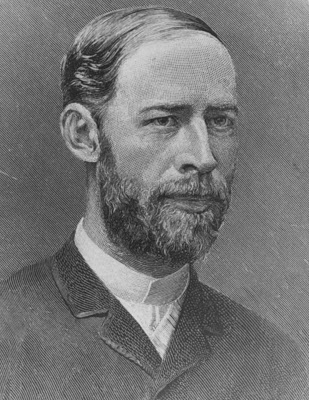
Heinrich Hertz (1857 – 1894) was a German who lived a short yet impactful life. He was interested in meteorology and assisted in making advances in weather forecasting. He also conducted groundbreaking research in electromagnetic waves, making him the first person to conclusively prove James Clerk Maxwell’s theory of electromagnetism.
Hertz was born in Hamburg into a wealthy and affluent family. He showed early aptitude in the sciences and went on the receive his PhD from the University of Berlin in 1880. He was able to study under the physicist and physician Hermann von Helmholtz, whom he became an assistant to in his post-doctorate studies. In 1885, Hertz obtained a full time professorship at the University of Karlsruhe.
During his time studying at the University of Berlin Helmholtz encouraged the university’s Philosophy Department to offer a prize to anyone who could solve the problem of whether electricity moves with inertia. Hertz showed that it did through a series of clever experiments and won the prize. Impressed by his work and capabilities, Helmholtz then asked Hertz to compete for a different prize offered by the Berlin Academy: verifying Maxwell’s theory of electromagnetism. He declined to work on this problem after he decided it would be too difficult and time consuming, instead electing to establish his reputation by doing work less tedious.
Six years later Hertz was working at the University of Karlsruhe and decided it was time to return to experimental physics. After several months of experiments some breakthroughs began to emerge. In November 1886 Hertz devised an experiment in the effects of electromagnetic waves were observed. They were originally called Hertzian waves, but were later renamed radio waves. These experiments also allowed Hertz to report on the photoelectric effect which would soon be explained by Albert Einstein.
Hertz successful scientific career was cut short becoming very ill and eventually passed away at the age of 36. The SI unit for frequency – hertz – was named in his honor in 1960, replacing the term “cycles per second.”